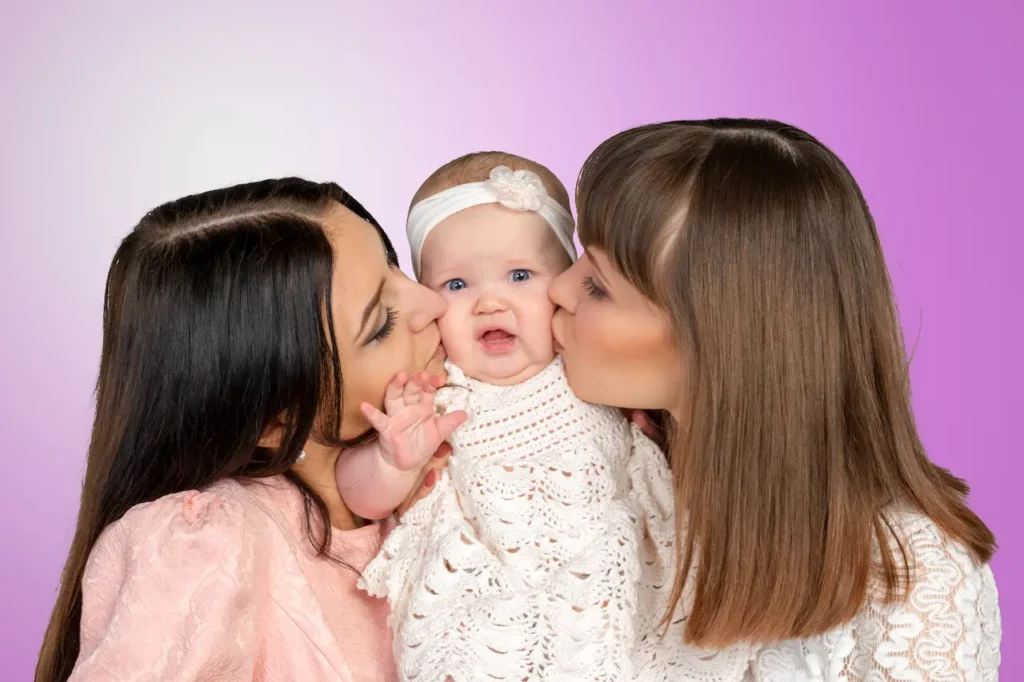Choosing the Right Godparents for Your Baby
The Tricky Task of Choosing the Right Godparents for Your Baby
For some parents, the task of choosing godparents may feel more challenging than selecting a name or picking out baby clothes. After all, godparents are meant to have a lasting impact on your child’s life, but how do you decide who will be the right fit for this important role? In this blog, we’ll explore the role of godparents, what it means to choose godparents today, and offer helpful tips for navigating this tricky task.
What It Means to Be a Godparent
Traditionally, the role of a godparent has been tied to religious ceremonies, particularly in Christian traditions. The godparents’ role was initially established to guide their godchildren through their religious journey. This meant that during a baptism, parents would select two adults (usually one godfather and one godmother) to take on the role of providing spiritual guidance and helping to nurture the child’s religious education. The idea behind this is that godparents would ensure that the child grows up with strong faith values and would be there to provide support in their spiritual life as they mature.

However, in modern times, the definition and role of godparents have evolved, and many families have opted for non-religious approaches when selecting godparents. For some parents, godparents are chosen simply to be positive role models who will provide support and guidance for the child outside of any religious context. In many cases, godparents today are seen as trusted mentors, individuals who have the emotional capacity and dedication to be a strong presence in a child’s life, regardless of religious affiliation.
While some parents still choose godparents based on faith and religious ceremony, others do so to ensure their child has a solid support system and role models as they grow. This reflects a broader shift in how we define family roles and relationships. No longer is it necessary to adhere to traditional religious norms; instead, many families now opt for a secular or humanist approach to godparenting.
What Godparents Are Not: Legal Guardians
One of the most common misconceptions when it comes to godparents is that they are automatically the legal guardians of the child in the event that something happens to the parents. This is not the case. The role of a godparent does not include legal guardianship unless the parents have explicitly made provisions for this in their will or other legal documents.
A godparent’s primary responsibility is to be an active, positive influence in a child’s life, offering emotional and spiritual support as needed. They are not automatically responsible for raising the child should something happen to the parents. Parents need to understand the distinction between godparents and legal guardians. Guardianship is a legal status that requires the parents to explicitly name someone in their will as the person responsible for the care and well-being of their children if the parents are no longer able to do so.
If you want your godparents to also serve as legal guardians, this should be clearly outlined in your will and discussed with the potential godparents beforehand. Be sure to have a legal consultation to make sure all legalities are addressed, as this is a different responsibility than the traditional role of a godparent.
When Are Godparents Typically Required?
For families who follow religious practices, godparents are often required as part of a baptism ceremony. This is especially common in Christian denominations, where godparents are chosen during the baptism process to help guide the child in their faith journey. Many parents who practice Catholicism, for example, are required to have godparents for their child’s baptism, as these individuals are seen as responsible for the child’s spiritual development.
However, religious reasons are not the only factor that may require the appointment of godparents. Many non-religious parents still choose to assign godparents because they want their children to have positive adult role models in their lives. For these parents, the godparent’s role may not necessarily be tied to religious education, but rather to providing mentorship and being a dependable, caring figure for the child.
Additionally, for some families, selecting godparents is a part of cultural or familial tradition. In certain cultures, having godparents is seen as a way to ensure that the child has strong ties to the extended family or community. These traditions can vary, and parents need to understand the expectations surrounding godparents in their particular culture and whether it aligns with their personal beliefs and values.
How Many Godparents Should You Have?
One question that often arises when choosing godparents is how many to select. Traditionally, many children have two godparents—one godmother and one godfather. However, there is no hard-and-fast rule regarding how many godparents a child should have. Some parents choose to have multiple godparents, especially if they want to include close friends or family from different parts of the world or different cultural backgrounds.
The number of godparents ultimately depends on the family’s preferences. It’s important to think about the role that each godparent will play in your child’s life and whether you have enough confidence in their ability to fulfill that role. Some parents may choose multiple godparents because they want their child to have a diverse set of role models, while others may prefer to keep the circle smaller for simplicity or emotional reasons.
If you are thinking about selecting multiple godparents, it’s worth considering how this will affect the child’s relationship with each individual. It’s important that each godparent feels a personal connection with the child and is genuinely invested in supporting their growth. Too many godparents could dilute the level of attention and mentorship each godparent provides, so it’s important to make thoughtful decisions.

Tips for Choosing the Right Godparents
Selecting the right godparents is not a decision to be taken lightly. The individuals you choose will play a lasting role in your child’s life, offering guidance and support as they grow. Here are four key tips to help you make this important decision:
1. Choose Someone Who Will Stick Around
Choosing godparents is about selecting individuals who will be involved in your child’s life for the long term. It’s important to pick people who are likely to remain in your child’s life for many years and who are dependable. Choosing someone who may not be around in a few years, such as a new romantic partner or a friend who moves frequently, could create instability in your child’s support system.
Family members are often a good choice because they are likely to be a consistent presence in your child’s life. Friends who have shown commitment and consistency over time are also great options. You want to ensure that the individuals you choose are people your child can rely on for years to come.
2. Choose Someone Who Is a Positive Influence
The role of a godparent is, in many ways, to be a positive role model for your child. When selecting godparents, think about the kind of influence the individual will have on your child’s development. Do you respect them? Do they live by the values you want to impart to your child? Are they someone who will provide guidance and support when needed?
Ideally, godparents should be individuals who have qualities you admire—whether it’s kindness, intelligence, generosity, creativity, or responsibility. Think about what your child might need as they grow and choose people who can provide those qualities. It’s not about being perfect; it’s about being a reliable, loving presence in your child’s life.
3. Don’t Choose Out of Obligation
Choosing godparents should be a thoughtful decision, not one made simply because someone expects to be chosen. It’s easy to feel pressure from family or friends who may assume they should be selected for the role. However, it’s important to remember that this decision is ultimately about what is best for your child, not about avoiding hurt feelings.
If you’re choosing between two or more people who expect to be asked, think carefully about the role each person will play in your child’s life. Choosing someone just to appease others may result in a godparent who is not as committed or invested in the child’s upbringing. Don’t be afraid to make the decision that feels right for your family.
4. Be Clear About Expectations
Once you’ve chosen your godparents, it’s important to be clear about what you expect from them. Many godparents may be unsure about what their role will entail, so it’s crucial to have an open conversation about your expectations. Do you want them to be a spiritual mentor? Will they be expected to take on a more active role in your child’s upbringing? Discussing your expectations can help alleviate any concerns the godparents might have, and it will also ensure that everyone is on the same page moving forward.
If, for any reason, a potential godparent is uncomfortable with the role or unwilling to take on the responsibility, it’s important to respect their decision. Being a godparent is a big commitment, and it’s important that they feel comfortable in their role.

Conclusion: Choosing the Right Godparents for Your Child
Selecting the right godparents for your child is not only an important decision, but it also allows you to give them positive role models and strong influences. There may be pressure from the family or society to choose certain people. However, your choice should reflect what’s best for your child in terms of their emotional, spiritual, and personal development. Godparents provide guidance, love, and support to their children, either through mentorship or faith. They are there to invest in your child for the long term and should be someone you can trust to support them through all stages of their life.
Godparents are also a great way to enrich the life of your child by sharing their unique talents, perspectives, and wisdom. The godparents may have a different perspective or life experience which complements your parenting style. You should consider the relationship between your child’s godparents and yourself. Before making a final decision, it’s important to have a conversation with the potential godparents. This will help everyone understand their roles and commitment.
The godparent role should not be taken lightly and never rushed. It’s important to choose people who will be with your child not only in their early years but for the rest of their life. Your child can benefit from a meaningful relationship with their godparent as it can be a source of comfort, care, and guidance. You can choose godparents who will have the greatest influence on your child, both now and in the future, by carefully considering their qualities.



